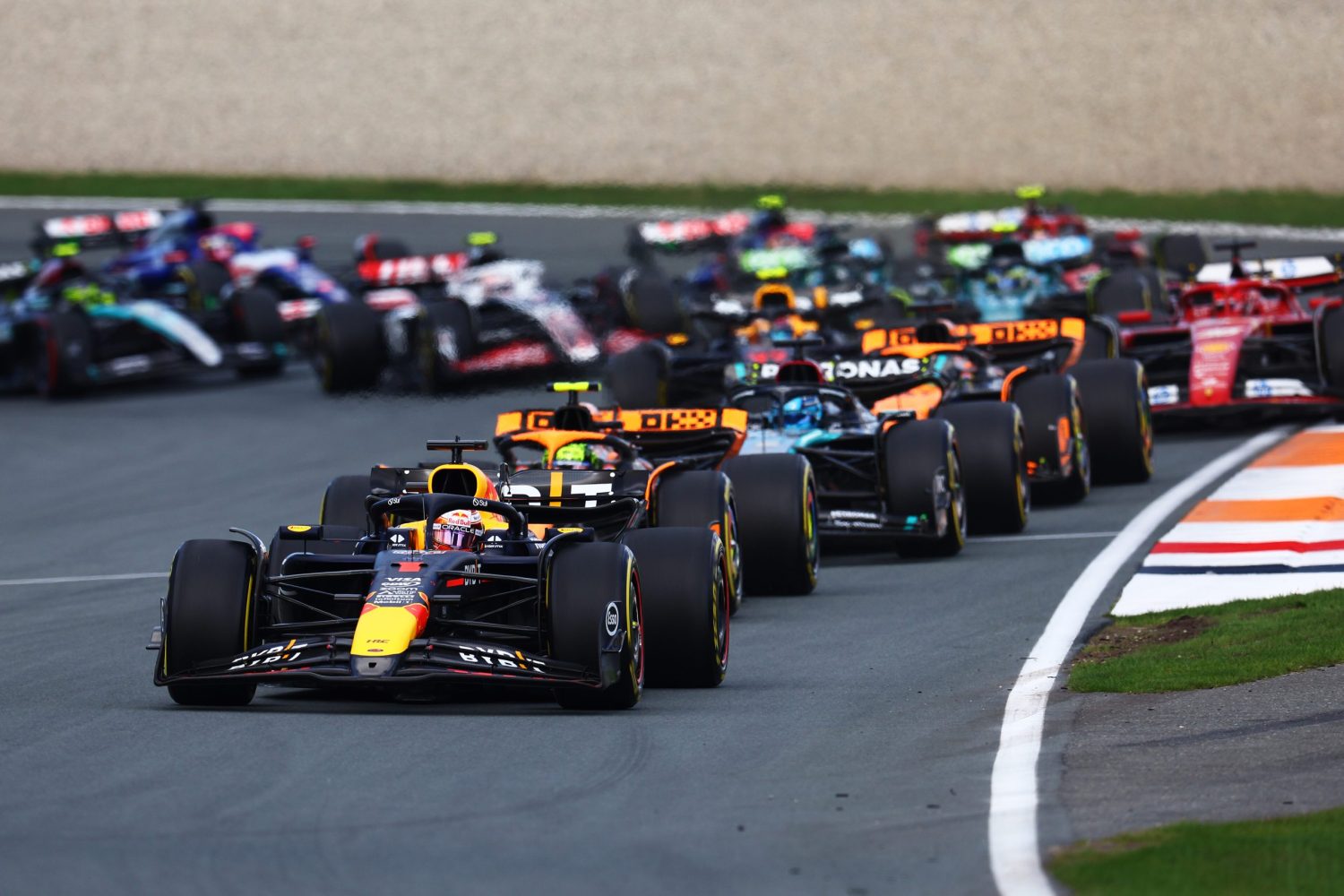
Motors
Addict
Today at 12:18
Formula 1 has always been a playground for cutting-edge technology, but while most F1 fans tune in for high-octane drama, what they don’t see is the essential invisible force driving the sport forward: artificial intelligence.
Behind every hairpin, sweeping band, tire change, and strategic gamble lies a powerful blend of AI and machine learning quietly reshaping the way teams race, strategize, and even connect with their fans.
McLaren, F1’s 2024 Constructors’ champions are at the forefront of Grand Prix racing’s latest revolution. Inside the team’s MTC in Woking, AI isn’t exactly a buzzword plastered on the walls, but its influence runs deep.
“We’re an organization that’s used traditional machine learning tech products for a long time,” Dan Keyworth, McLaren’s director of business technology, told the media earlier this year according to CNBC.
And with good reason as F1 is a sport where decisions made in milliseconds can mean the difference between champagne and disappointment.
McLaren has mastered the art of turning data into speed. Using machine learning, the team bases decisions on probabilities, helping train AI models that simulate endless scenarios. This can include calculating the optimal pit stop timing or figuring out the best tire choices during a race.
“What AI allows us to do from a generative perspective is to actually game out more of those actual scenarios and go, ‘What will happen?'” Keyworth explained.
Some of those predictions, he admitted, have become “almost scary” in their accuracy. And it’s not just simulations. McLaren uses “digital twins,” 3D virtual replicas of their F1 cars, to replicate real-world conditions and fine-tune performance.
The team even relies on mobile data centers – miniature server rooms flowing around the globe alongside their cars – to keep the operation running in real time.
“Connectivity is probably the lifeblood of the sport,” said Keyworth. “Without it, nothing starts. “No car can be on the track safely.”
McLaren isn’t alone in exploiting AI. Aston Martin, for example, uses “data lakes” – massive storage repositories that help them analyze tire data, weather patterns, and track conditions to predict race outcomes.
“The speed at which these developments are happening is really impressive,” said Clare Lansley, Aston Martin’s CIO. Machine learning algorithms, she noted, have freed up engineers to focus on boosting car performance instead of crunching numbers.
Meanwhile, Visa Cash App RB has also adopted AI in a bid to refine its strategies down to fractions of a second.
“AI means you don’t need to run 100 simulations,” said Guillaume Dezoteux, head of vehicle performance for the team. “With AI, F1 is proving that even split-second decisions can be calculated with precision.”
But it’s not all about shaving milliseconds off lap times. AI is also transforming the very business of Formula 1.
For McLaren, it’s helping engage a global fanbase, particularly in growing markets like the US, by personalizing content delivered at the right moment.
©RedBull
Keyworth explained that the goal is to “enrich the journey and experience, and make our fans feel more connected.” From customized marketing to virtual fan experiences, AI is making it easier for F1 teams to understand and interact with their audience.
And internally, AI is helping lighten the workload for staff.
“It’s not a labor replacement—it’s a ‘laborious’ replacement,” Keyworth quipped. “You want to unlock your team to do the things that you hired them for – not to work through the overhead that lives in their role.”
By automating mundane tasks, McLaren enables its team members to focus on their core expertise.
If all this sounds like F1 teams are becoming tech companies that also happen to race cars, well, that’s not far off.
With cloud computing, real-time data analytics, and AI-powered simulations, the sport has become a high-speed laboratory for innovation.
A team’s tech revolution isn’t just about outpacing competitors – it’s about surviving in a fiercely competitive environment where the smallest advantage can translate to glory.
McLaren, Aston Martin, Red Bull, and their rivals aren’t just racing cars; they’re racing ideas, algorithms, and predictions.
As AI tools continue to evolve, don’t be surprised if they become even more integral to F1’s future.
From crafting smarter strategies to connecting with fans in new ways, artificial intelligence is reshaping the sport in ways that even the most sophisticated wind tunnel couldn’t predict.
And for the teams that get it right, the rewards aren’t just trophies – they’re a place at the forefront of motorsport history.
So, the next time you’re watching a Grand Prix, remember that behind every thrilling overtake, there’s a lot more than driver skill, racecraft and horsepower at play.
Somewhere in a high-tech control room, algorithms are crunching numbers, engineers are running simulations, and AI is quietly plotting the next move.
Keep up to date with all the F1 news via Facebook and
The post Racing smarter: How artificial intelligence is transforming F1 appeared first on F1i.com.
Top 5 f1
1.
Today at 12:00
2.
Today at 12:00
3.
Today at 12:00
4.
Today at 11:56
5.
Today at 11:46
6.
Today at 11:39
7.
Today at 11:24
8.
Today at 10:07
9.
Today at 09:47
10.
Today at 08:30
11.
Yesterday at 22:55
12.
Yesterday at 22:10
13.
Yesterday at 21:55
14.
Yesterday at 21:24
15.
Yesterday at 20:54
16.
Yesterday at 20:30
17.
Yesterday at 20:10
18.
Yesterday at 19:19
19.
Yesterday at 18:54
20.
Yesterday at 17:44
Motors
Addict
